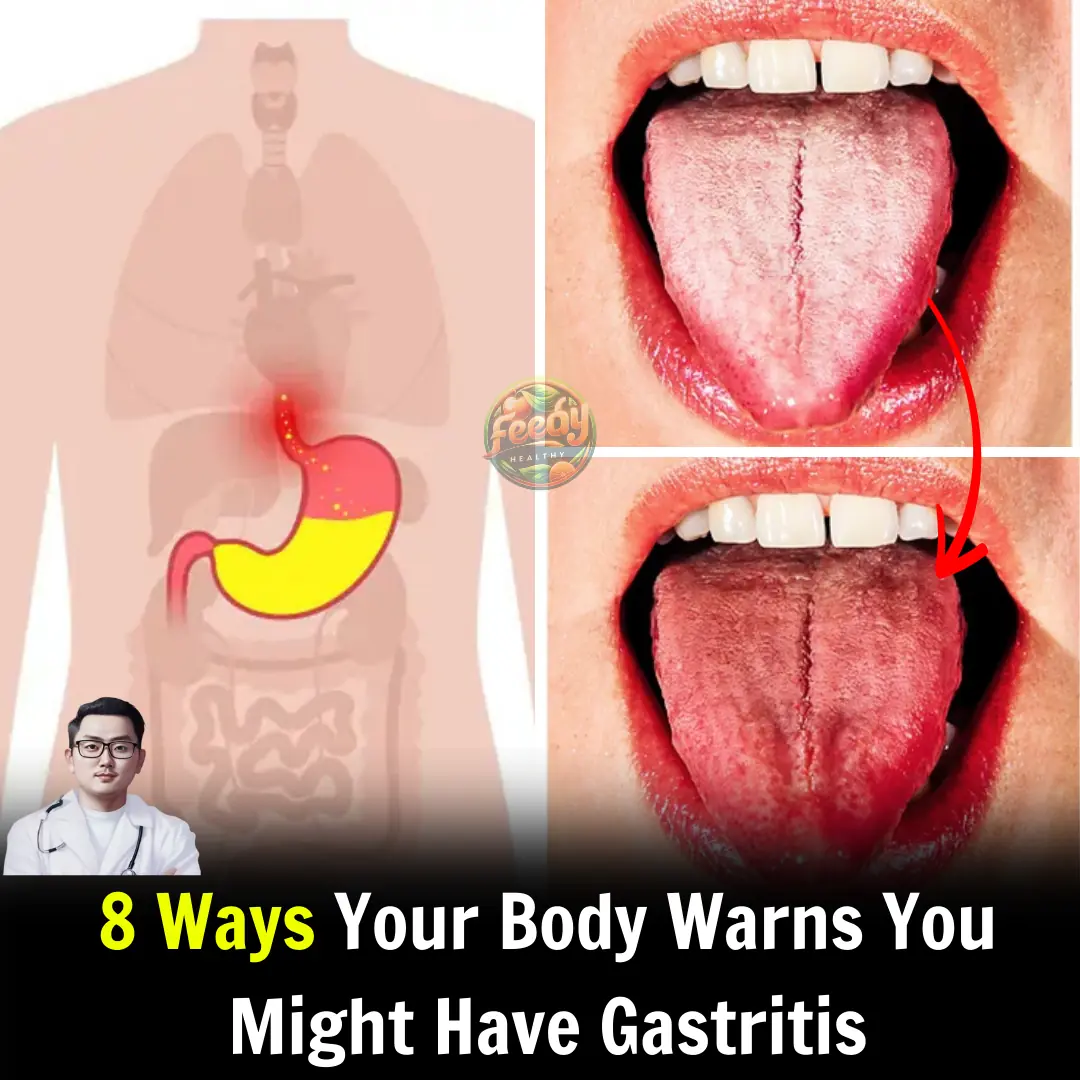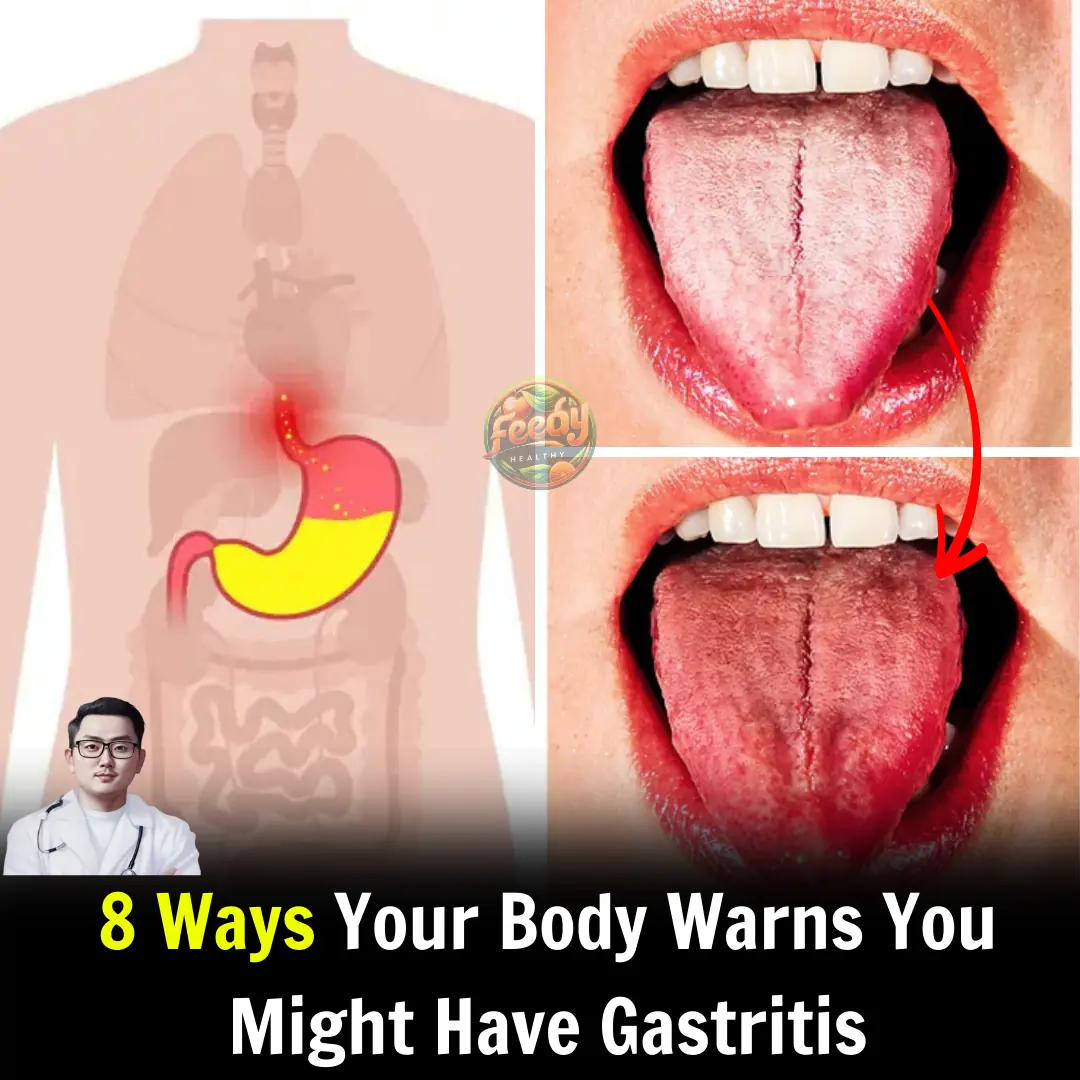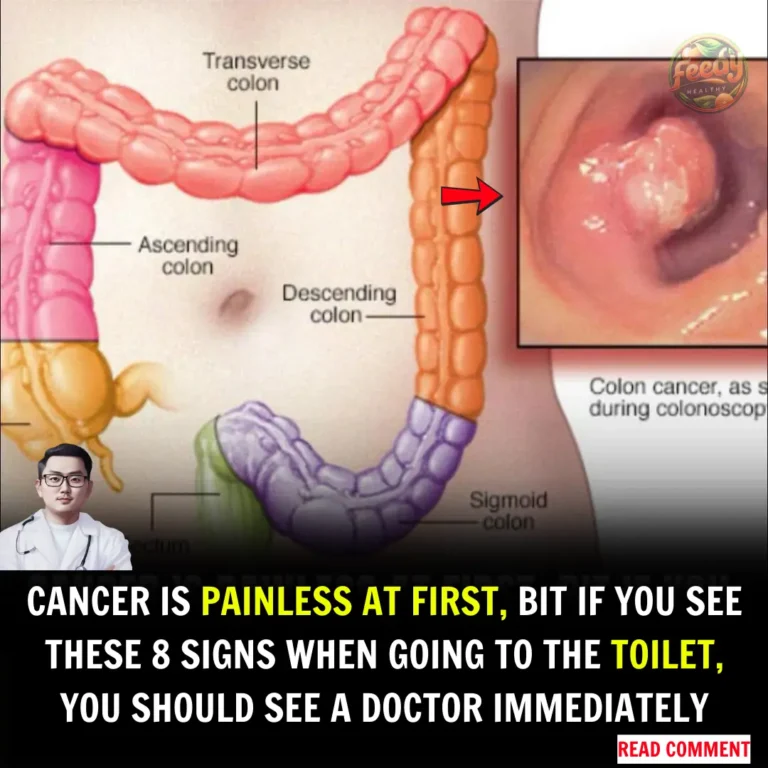8 Ways Your Body Warns You Might Have Gastritis

Gastritis is a common yet often overlooked stomach issue that occurs when the stomach lining becomes inflamed. It can be caused by stress, poor diet, alcohol consumption, certain medications, or infections like Helicobacter pylori. While mild cases may resolve on their own, chronic gastritis can lead to more severe complications if left untreated. Understanding the subtle warning signs your body gives you can help prevent further damage and discomfort.
1. Unexplained Black or Tarry Stools
If your stool appears black and tarry, it could indicate gastrointestinal bleeding—a serious sign of chronic gastritis. When the stomach lining erodes, blood can mix with digestive juices, causing stool to darken. If you notice this symptom, seek medical attention immediately as it could indicate an ulcer or more severe stomach damage.
2. Persistent Stomach Burning or Discomfort
A burning sensation in your upper abdomen, similar to acid reflux, is a telltale symptom of gastritis. This pain may come and go, worsening on an empty stomach or after eating spicy, fatty, or acidic foods. The inflammation in your stomach lining makes it more sensitive to stomach acid, which can worsen discomfort over time.
3. Loss of Appetite and Unexpected Weight Loss
Gastritis often leads to nausea or a feeling of fullness after eating only a small amount of food. This can result in decreased appetite and unintentional weight loss. If you find yourself skipping meals due to discomfort, it may be time to assess your digestive health.
4. Frequent Hiccups and Burping
Excessive burping and persistent hiccups can signal underlying stomach inflammation. When gastritis interferes with digestion, it can cause excess gas buildup, bloating, and irritation in the digestive tract. If these symptoms become frequent, they may be more than just an occasional nuisance.
5. Constant Bloating and Abdominal Pain
Feeling bloated even after a light meal? Inflammation caused by gastritis disrupts digestion, leading to bloating and stomach cramps. Unlike temporary bloating from overeating, gastritis-related bloating may persist for hours or even days, accompanied by tenderness in the upper abdomen.
6. Chest Pain That Radiates to the Back
Although commonly mistaken for heartburn or even cardiac issues, gastritis can cause chest pain that radiates to the back. This occurs due to acid irritation and inflammation in the stomach lining. If you frequently experience this symptom, it’s crucial to differentiate it from more serious conditions like heart disease.
7. Dark Circles Under the Eyes and Fatigue
When gastritis interferes with nutrient absorption, particularly iron and vitamin B12, it can lead to fatigue and dark circles under the eyes. Poor circulation and decreased oxygen levels in the blood make the skin look dull and tired. If you constantly feel exhausted despite getting enough rest, your stomach health could be the culprit.
8. White Coating on the Tongue
Your digestive system and oral health are closely connected. A thick white coating on your tongue may indicate digestive imbalances, including gastritis. When stomach inflammation affects the digestive process, toxins and bacteria can build up, manifesting as oral health issues.
How to Manage and Prevent Gastritis
If you recognize these warning signs, it’s essential to take proactive steps to manage your stomach health:
✅ Adjust Your Diet: Avoid spicy, acidic, and processed foods that irritate the stomach lining. Opt for soothing foods like oatmeal, bananas, and yogurt.
✅ Reduce Stress: Chronic stress contributes to gastritis flare-ups. Incorporate meditation, deep breathing, and relaxation techniques into your routine.
✅ Limit Alcohol and Caffeine: Both substances can increase stomach acid production and worsen inflammation.
✅ Hydrate Properly: Drinking plenty of water aids digestion and prevents stomach irritation.
✅ Seek Medical Advice: If symptoms persist, consult a doctor for proper diagnosis and treatment. Some cases may require medications like antacids, proton pump inhibitors, or antibiotics for H. pylori infections.
Ignoring gastritis symptoms can lead to ulcers, stomach bleeding, and even more severe digestive conditions. By recognizing these early signs and making lifestyle adjustments, you can protect your stomach and overall well-being. Stay informed, listen to your body, and take action before minor discomfort turns into a serious health issue. 🚨







